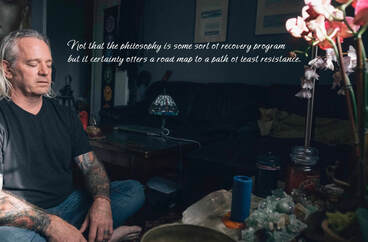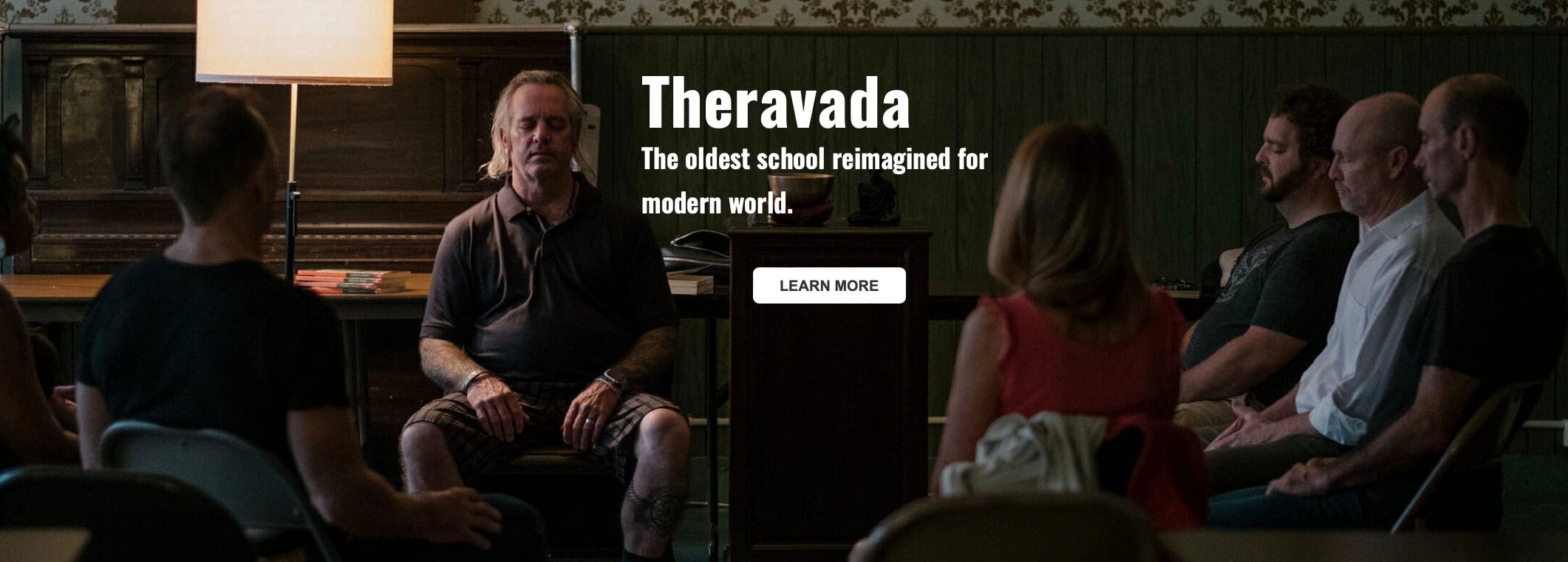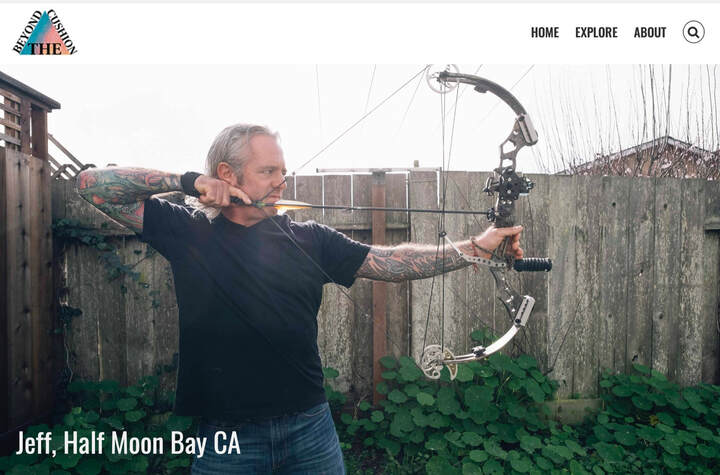|
Somewhere along the line I met Jack Huynh, a friend and family member of our Dharma Community here in the Bay Area. Jack is a brilliant photographer, videographer and has the patience and determination it takes to put together a multi-media overview of modern Buddhism in the U.S. and the many forms it inhabits. Jack first interviewed me at my home in 2017, still in teacher training and about to be married. Then again in 2019 at the home of SomaDharma at 5051 Mission Street. After a division in our meditation community, yet before the division of the pandemic. Please check out this work at beyondthecushion.com  (2017- At Home) WHEN WERE YOU FIRST EXPOSED TO DHARMA? I learned about meditation as a youngster, but it wasn’t until around 2004 that I started going to the Dharma Punx group on Friday nights in SF (the Back of the Bus) and hearing the dharma talks there in a language I could understand and with people that looked like me that I really felt exposed. It became my path when I learned to walk again as a sober man in 2014. In early sobriety I held on to the dharma like a life raft. I literally took refuge in the Buddha, Dharma and Sangha. Thankfully, enough of the teachings seeped in from earlier, they were kind of lying in wait for my heart and mind to detox enough to truly absorb. Saved my ass – for real. Not that the philosophy is some sort of recovery program but it certainly offers a road map to a path of least resistance. HOW HAS THE PATH MANIFEST IN YOUR DAILY EXPERIENCE? DOES IT REFLECT IN YOUR WORK AND RELATIONSHIPS? I’ve learned how to see what’s coming at me from the outside through seeing what’s coming at me from the inside. So I pay a lot more attention to how my thoughts and feelings try to pull me around. Even the way bodily pain can effect my behavior. If I find myself getting a little too far out there, I can pull back and understand I can only create and respond to the past or future in this moment. Just like what we learn in Vipassana meditation. This and taking the 5 precepts to heart has really given me a solid foundation. Sati and Sila. I do my best to apply this to work, relationships, my practice, whatever, and when I fall short, I just check out where I’m at with that too and keep going. It’s worked out pretty well. I seem to be doing more of what I enjoy and less of what I don’t. I started training to teach a while back and that’s coming to fruition these days. I wrote and published a book too. The construction thing is still paying the bills and I’m even getting married to my sweetie this year. (2019 - At Soma Dharma, a transcript) On the Composition Yeah, we’re super unconventional here, and I would be uncomfortable saying what type of person would come in here. Like, every body can get in here. I’m going to reference a little bit the recovery model again. What I know about drug addiction and alcoholism is that it doesn’t discriminate at all. It discriminates as much as cancer or anything else, from any class, color, sexual orientation, age, you name it. We’re all susceptible to suffering either through addiction or through ordinary or extraordinary things in life that - that hurt us. I don’t know what an individual will come in and be comfortable with or not. And, if they are uncomfortable and don’t want to ride that out in here, it’s totally OK. I want to encourage anybody to know the doors are unlocked in here, you can let in or let out whatever you’re cool with. We have just, as an example, an artist, an architect, a mechanic, a schoolteacher, a counselor, a builder, a scientist. Yeah. These are just the professions that come in here. And as far as their economic status or sexual orientation, I couldn’t tell you and, only they know what’s right to show. That’s just stuff that lands in the room. Yeah. On the Container It’s been interesting. Our little group is coming on to just about a year. So I sort of had to show up with the same kind of attitude that I wanted other people to show up with. So, this is just kind of how I would do it if I didn’t have to obey any rules. And I want people to not feel that we have to abandon what’s going on to come in here. It’s cool to come in here smelling like work, or with a bad attitude, or proud of something, or whatever. It makes me kind of feel good and feel at home to play some music. So I usually have some cut of rock music or tonight there was some reggae or something going. I think that helps people just kind of show up. And just if they don’t know each other, they can just hear the music. And it’s just kind of noisy and rowdy sometimes and just sort of feels like family. I like to see that. And I think we go at the meditation and the teachings with that same sort of attitude. I really want to demystify it. You know, I’m not going to sit up here and act like I’m some sort of monk or scholar or anything else, just sort of a Buddhist geek and try to share my experience and, and do my best to draw out of the group what their experiences are, to learn the most from each other that way. And there’s, like I said tonight, there’s no - there’s no separating dharma from the rest of life. The whole idea is down there on the street, the street fight there. Then we’re being serenading with a tambourine we had tonight. That just got delivered into our practice up here. Now there’s nothing that doesn’t belong in here. Yeah. Can you specify your role? Yeah. Yeah. I love it. It’s a, it’s a real interesting balance to be and act like a leader because I think there’s a certain element that gets created when there’s structure and there’s some point person, there’s some discipline. I think it creates a level of safety. And when that crosses into a sort of authoritarian role, sit this way, act that way, I get to talk, you don’t. That shit seems to spill into a form of separateness, which I am certainly not. The teachers that I learned from told me that the curriculum should come in second or third, maybe fourth in line and the first always being this connection, this ability to transmit authentic storytelling. I work on bringing a personal aspect. Um, because I think that’s what Dharma is. It’s so personal. So, so intimate and I respect the Buddhist model of teaching by not saying hey do it this way, but rather that this is what works and I’ll try my best to explain it and see if that works for you and then you’ll see for yourself. And in a group that’s small enough, with a dozen or 20 of us, there’s enough opportunity for those who want to voice what they’re excited about or they’re struggling with. And I try to allow for about a quarter or a third of the time that we have here to be an opportunity to get your voice in the room and listen and share with your peers. So there’s a bit of a mixture and inconsistency, and I’m sort of playing with a peer led model and seeing that love for teaching and helping from others in our group. I’ll reference the recovery room again, the parallel to the model that anybody in the room can lead the meeting. There’s still that thing though, if there’s somebody sitting up there with a binder or somebody with a bell next to them and a piece of paper, you’re think they’re the one. And I mean, people come in here looking for something to do, some direction to go, so you got to respect that responsibility and do your best to help show the way from your heart, right? And you know, I mean, if you came all the way from wherever you came from to come here, I’m going to have something prepared to make it worth your while. I think that’s important too. On the Fallout There was a total split, and I think this might be the elephant in the room. It’s that the founder of our parent group, Against the Stream, Noah Levine had some trouble, there were some accusations, allegations against him, which led to nothing but the fallout and dissolution of Against the Stream and some other organizations he had in place are coming apart. And I just wasn’t in the camp of vilification based on speculation. It’s not that I was waving the banner down the street saying yay Noah, but I just wasn’t in the camp of saying I’m going to completely abandon this person, my friend, my teacher who opened the door to the dharma for me and the founder of this community I fell in love with because there's problems in his life. I think my popularity suffered because of that position. Which I find so unfortunate, so unbecoming of a Buddhist community. On Human Connection If I had the magic bullet of getting through to people just how vital that is, this human connection. Really, and I think if there’s one thing I can, I could dream up and say, I just want to get this through to as many people as possible. Being able to have an in the the same space conversation. It’s such a virtue, and it’s just vanished and being eroded further and further and further apart by us becoming insulated by fixed views. And I mean, I don’t think we need to go into the state of the world as it is today and how social media and instant communication and everything’s a statement and whatever I say goes out to 1,000,000 people and the likes and dislikes in that, oh, the pain of being dismissed by 1000 people. I always thank everybody and point to lets please, please not take this for granted. You know, it’s so precious to be among each other and even be awkward at times. And I see it, particularly with younger people who come and it’s so hard. It’s so hard to look at someone in the face and ask to have a real conversation. That scares me a little bit, you know, it’s just so valuable and so close to being a forgotten skill. Yeah, so comparing that type of wisdom, what you can get out of a true, authentic connection to what you can read about or listen to or watch online, which, as I pointed to, is a great resource. But I don’t know, it’s almost like saying that we can just look at beautiful pictures of food and feel like we’re nourished by it. It’s just not the same.
0 Comments
Leave a Reply. |

